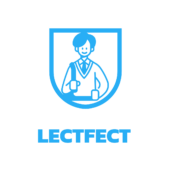In this dynamic landscape of education, the integration of innovative learning strategies into the curriculum is paramount for fostering a stimulating and enriching learning environment. Through a strategic blend of proven methodologies and modern approaches, educators can cultivate a culture of continuous learning and growth among students. Embracing the synergy between learning strategies and curriculum development paves the way for a transformative educational experience that empowers learners to thrive in an ever-evolving world.
Learning Strategies Curriculum
 Effective learning strategies are fundamental in developing a successful curriculum that caters to the diverse needs of students. By incorporating tailored strategies, educators can enhance the learning experience, ensuring that all learners are engaged and motivated. These strategies play a vital role in maximizing student comprehension and retention, ultimately leading to improved academic performance. By acknowledging the importance of individual learning styles and preferences, educators can create a dynamic and inclusive learning environment that fosters growth and development.
Effective learning strategies are fundamental in developing a successful curriculum that caters to the diverse needs of students. By incorporating tailored strategies, educators can enhance the learning experience, ensuring that all learners are engaged and motivated. These strategies play a vital role in maximizing student comprehension and retention, ultimately leading to improved academic performance. By acknowledging the importance of individual learning styles and preferences, educators can create a dynamic and inclusive learning environment that fosters growth and development.
Components of a Comprehensive Curriculum
A comprehensive curriculum integrates a variety of elements to ensure a well-rounded educational experience. These components include detailed lesson plans, engaging learning activities, formative assessments, and ongoing feedback mechanisms. By incorporating a mix of traditional teaching methods with innovative approaches such as project-based learning and technology integration, educators can cater to different learning preferences and enhance student engagement. A comprehensive curriculum also emphasizes the importance of cultivating critical thinking skills, problem-solving abilities, and creativity among students, preparing them for success in an ever-evolving world.
Learning Theories Behind the Curriculum
Cognitive Learning Theory
Learning strategies in curriculum design often draw from the cognitive learning theory. This theory posits that learning is an active process of constructing knowledge through experience and reflection. By emphasizing the importance of mental processes like memory, attention, and problem-solving, educators can optimize curriculum design to enhance student learning outcomes. Integrating cognitive learning theory into curriculum development allows for the scaffolding of information, fostering deeper understanding and retention among students.
Constructivist Approach
 Another key theory that underpins effective learning strategies in curriculum design is the constructivist approach. This approach suggests that learners construct their understanding of the world by building upon prior knowledge and experiences. In curriculum design, implementing the constructivist approach involves creating interactive learning environments where students are actively engaged in constructing knowledge rather than passively receiving information. By incorporating hands-on activities, collaborative projects, and real-world applications, educators can promote meaningful learning experiences that align with the constructivist philosophy.
Another key theory that underpins effective learning strategies in curriculum design is the constructivist approach. This approach suggests that learners construct their understanding of the world by building upon prior knowledge and experiences. In curriculum design, implementing the constructivist approach involves creating interactive learning environments where students are actively engaged in constructing knowledge rather than passively receiving information. By incorporating hands-on activities, collaborative projects, and real-world applications, educators can promote meaningful learning experiences that align with the constructivist philosophy.
Implementation in Different Educational Settings
K-12 Education
In K-12 education, implementing learning strategies in the curriculum is crucial for fostering a well-rounded educational experience. Tailoring strategies to meet the diverse needs and learning styles of students can significantly impact their academic growth. By incorporating a mix of traditional teaching methods and modern approaches, educators can create engaging lessons that promote critical thinking, problem-solving, and creativity among students. Lesson plans, activities, assessments, and feedback mechanisms are essential components of a comprehensive curriculum that can enhance student engagement and learning outcomes in K-12 settings.
Higher Education
 In higher education, the implementation of learning strategies in the curriculum plays a vital role in preparing students for the complexities of the professional world. By integrating innovative teaching methods and technologies into the curriculum, educators can empower students to develop advanced cognitive skills such as analytical thinking, research abilities, and practical application of knowledge. Creating interactive learning environments that encourage active participation and collaboration among students is key to promoting deep learning experiences aligned with the constructivist philosophy. In higher education, a well-designed curriculum that focuses on incorporating diverse learning strategies can equip students with the necessary skills and competencies to succeed in their chosen fields.
In higher education, the implementation of learning strategies in the curriculum plays a vital role in preparing students for the complexities of the professional world. By integrating innovative teaching methods and technologies into the curriculum, educators can empower students to develop advanced cognitive skills such as analytical thinking, research abilities, and practical application of knowledge. Creating interactive learning environments that encourage active participation and collaboration among students is key to promoting deep learning experiences aligned with the constructivist philosophy. In higher education, a well-designed curriculum that focuses on incorporating diverse learning strategies can equip students with the necessary skills and competencies to succeed in their chosen fields.
Challenges and Solutions in Implementing Learning Curriculum
Implementing learning strategies in curriculum design poses challenges but offers rewarding solutions. By tailoring strategies to diverse needs and learning styles, educators can engage students effectively. Integrating traditional and innovative methods fosters critical thinking and problem-solving skills, enhancing the overall learning experience. The use of cognitive learning theory optimizes curriculum design by focusing on mental processes like memory and problem-solving. Moreover, the constructivist approach emphasizes connecting new knowledge to prior experiences for meaningful learning outcomes. Implementing these strategies in K-12 and higher education settings prepares students for success by developing advanced cognitive skills and promoting deep learning experiences. Embracing diverse learning strategies equips students with the necessary skills to thrive in today’s dynamic world.

